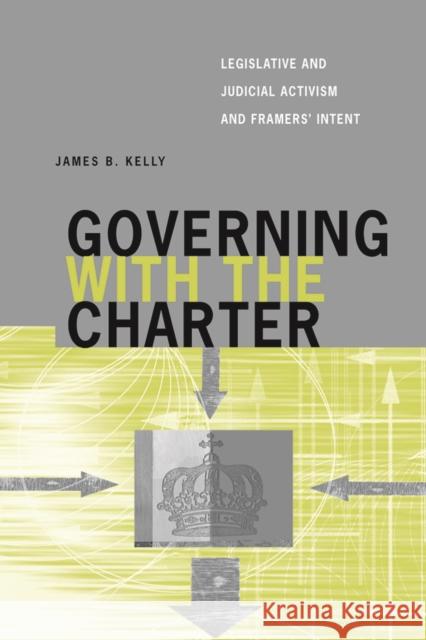Governing with the Charter: Legislative and Judicial Activism and Framers' Intent » książka
Governing with the Charter: Legislative and Judicial Activism and Framers' Intent
ISBN-13: 9780774812122 / Angielski / Miękka / 2006 / 336 str.
Governing with the Charter: Legislative and Judicial Activism and Framers' Intent
ISBN-13: 9780774812122 / Angielski / Miękka / 2006 / 336 str.
(netto: 139,89 VAT: 5%)
Najniższa cena z 30 dni: 145,09
ok. 22 dni roboczych.
Darmowa dostawa!
Since the introduction of the Canadian Charter of Rights and Freedoms in 1982, the question of judicial power and its relationship to parliamentary democracy has been an important one in Canadian politics. Some critics, suspicious of what they perceive as the "activism" of "unelected and unaccountable" judges, view the increased power of the Supreme Court as a direct challenge to parliament. But has parliamentary democracy been weakened by judicial responses to the Charter?In Governing with the Charter, James Kelly clearly demonstrates that our current democratic deficit is not the result of the Supreme Court's judicial activism. On the contrary, an activist framers? intent surrounds the Charter, and the Supreme Court has simply, and appropriately, responded to this new constitutional environment. While the Supreme Court is admittedly a political actor, it is not the sole interpreter of the Charter, as the court, the cabinet, and bureaucracy all respond to the document, which has ensured the proper functioning of constitutional supremacy in Canada.Kelly analyzes the parliamentary hearings on the Charter and also draws from interviews with public servants, senators, and members of parliament actively involved in appraising legislation to ensure that it is consistent with the Charter. He concludes that the principal institutional outcome of the Charter has been a of parliament and that this is due to the prime minister's decision on how to govern with the Charter.A significant contribution to law and society studies, Governing with the Charter will be widely read by political scientists, legal scholars, parliamentarians, public servants, and students of the machinery of government.











